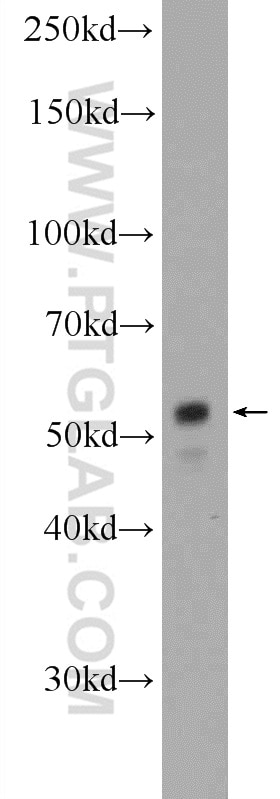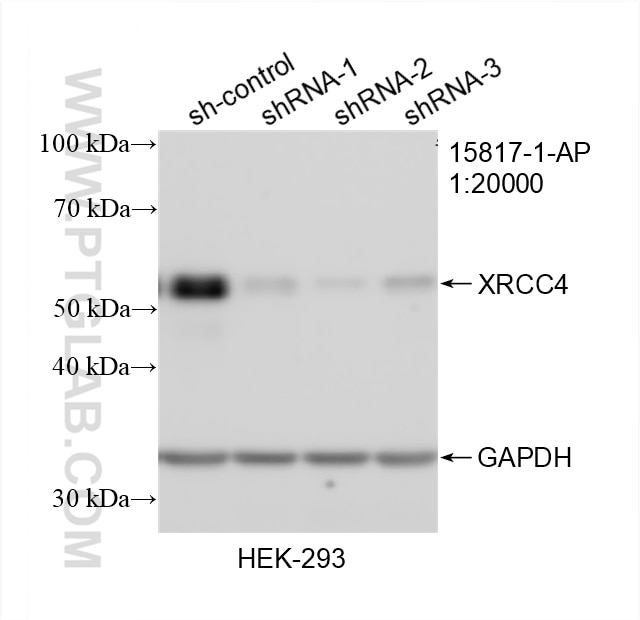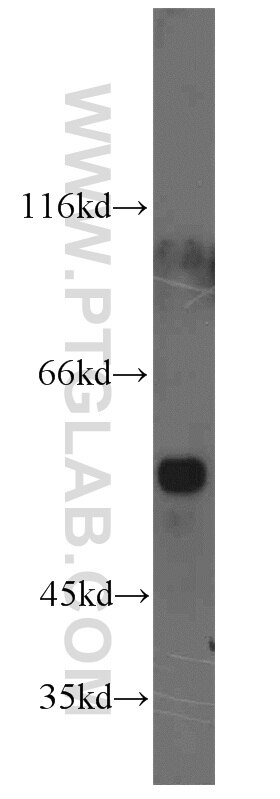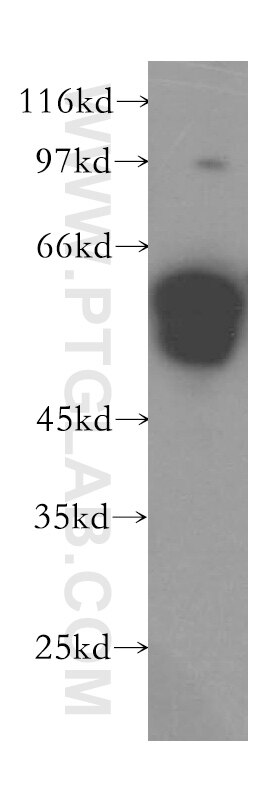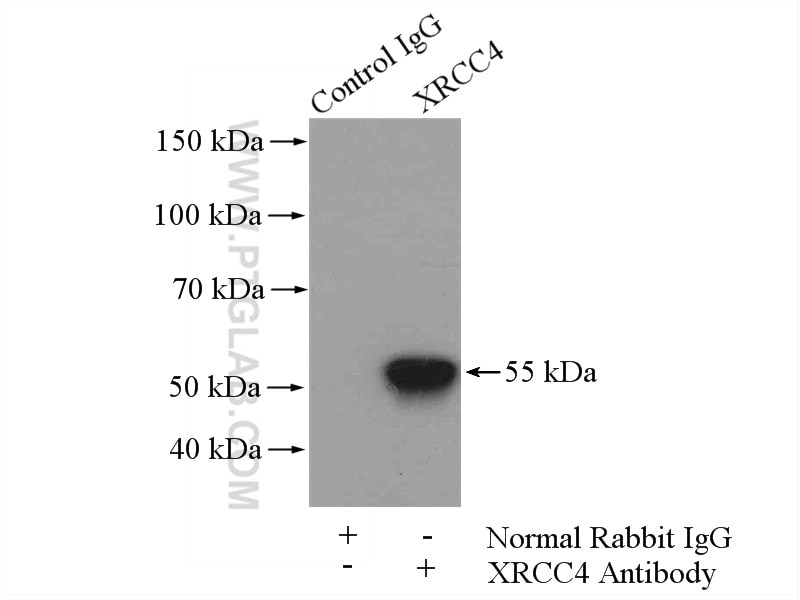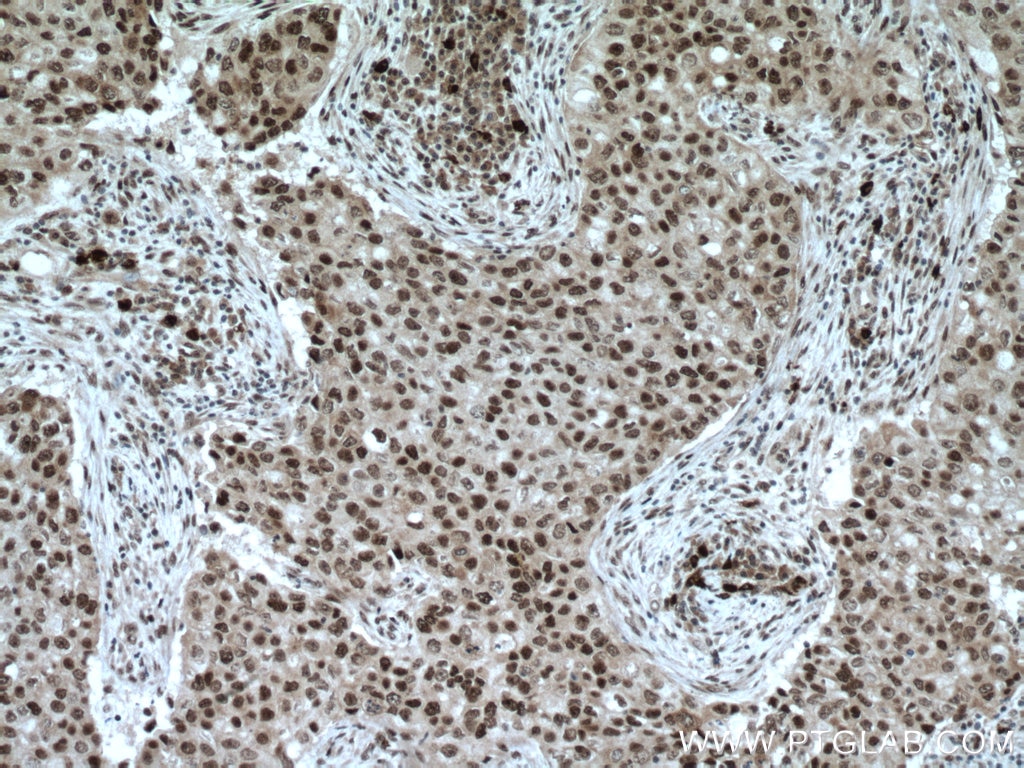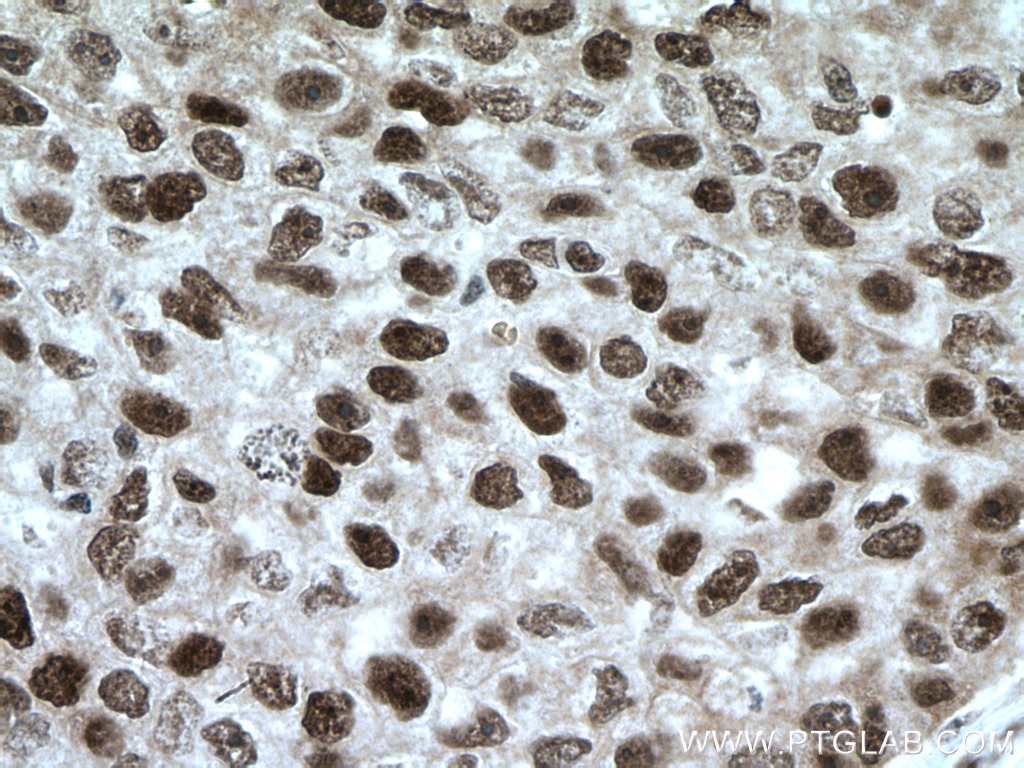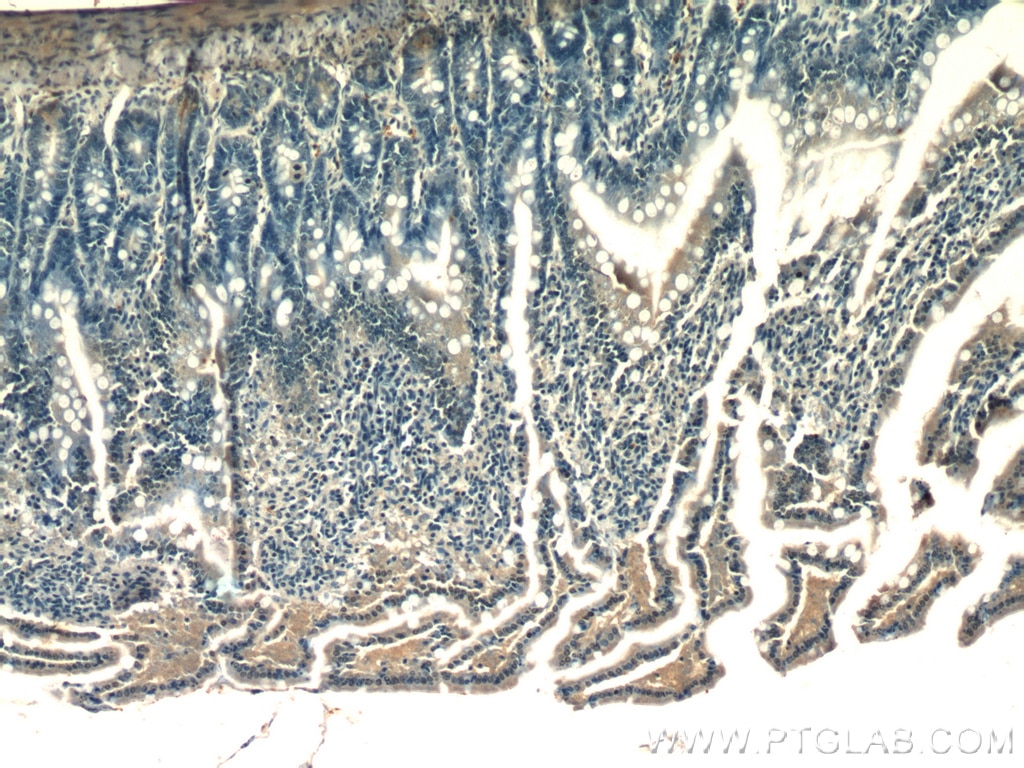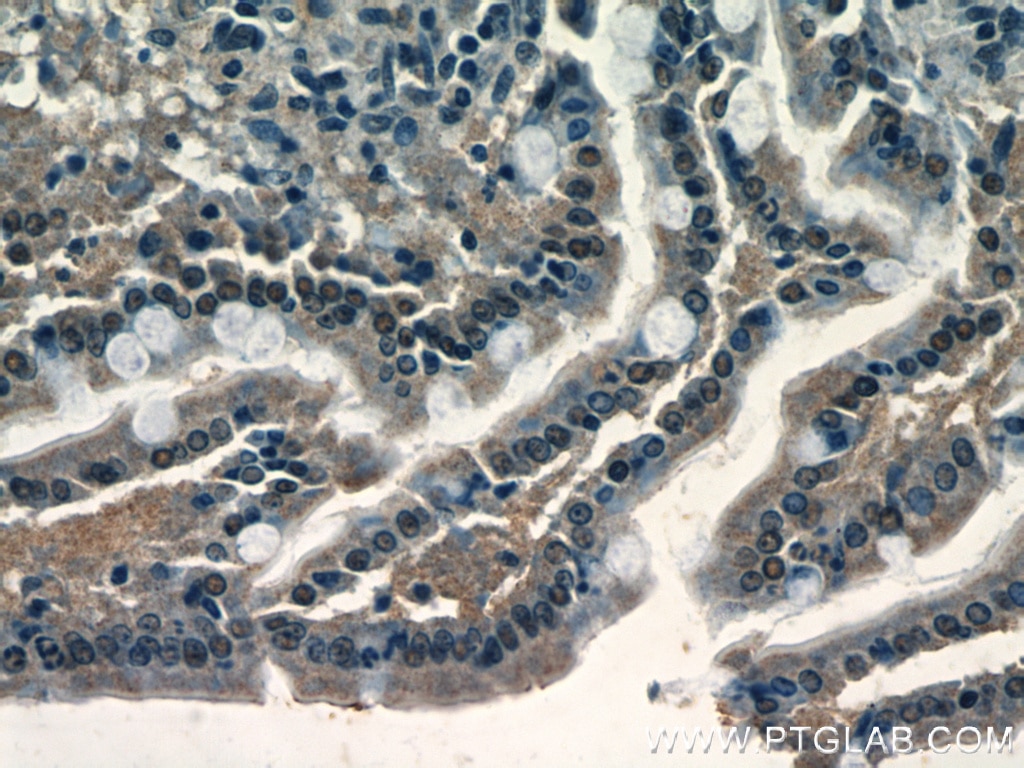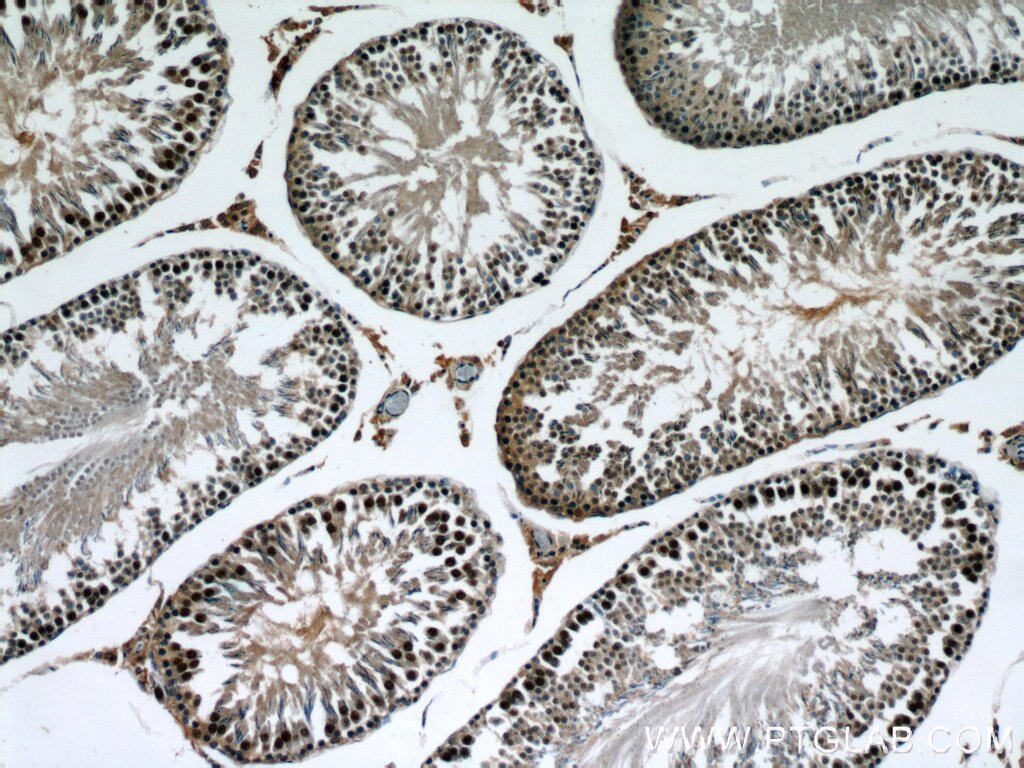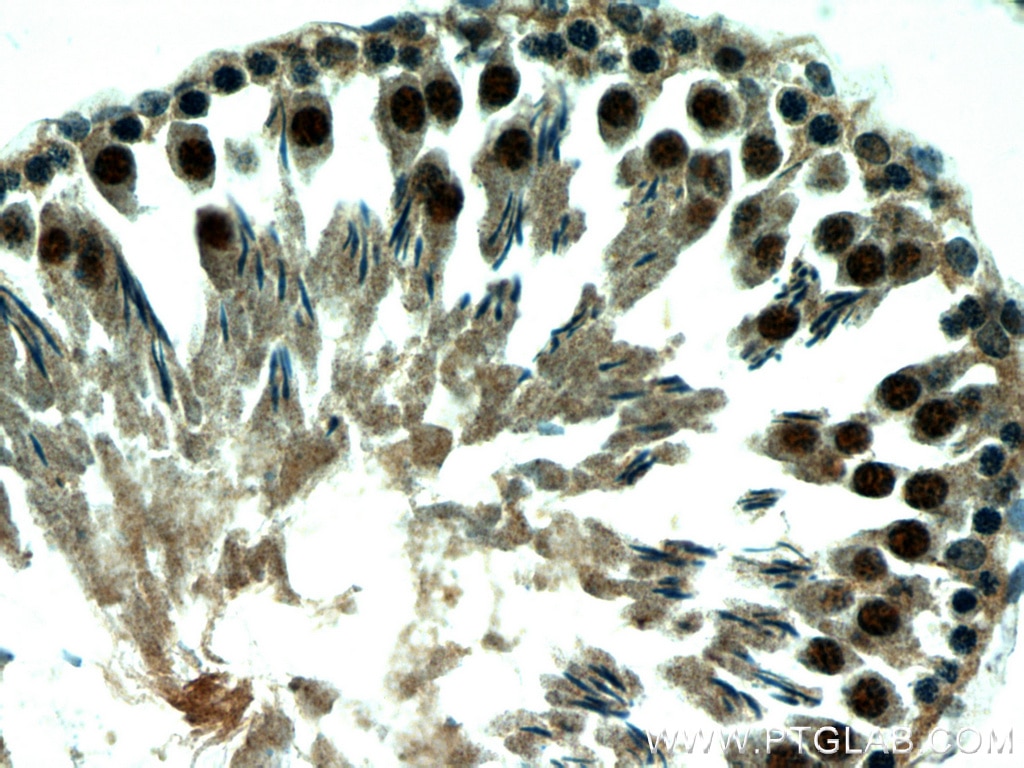- Featured Product
- KD/KO Validated
XRCC4 Polyklonaler Antikörper
XRCC4 Polyklonal Antikörper für WB, IHC, IP, ELISA
Wirt / Isotyp
Kaninchen / IgG
Getestete Reaktivität
human, Ratte und mehr (1)
Anwendung
WB, IHC, IF, IP, ELISA
Konjugation
Unkonjugiert
Kat-Nr. : 15817-1-AP
Synonyme
Geprüfte Anwendungen
| Erfolgreiche Detektion in WB | HepG2-Zellen, COLO 320-Zellen, HEK-293-Zellen |
| Erfolgreiche IP | HepG2-Zellen |
| Erfolgreiche Detektion in IHC | humanes Mammakarzinomgewebe, Ratten-Dünndarmgewebe, Rattenhodengewebe Hinweis: Antigendemaskierung mit TE-Puffer pH 9,0 empfohlen. (*) Wahlweise kann die Antigendemaskierung auch mit Citratpuffer pH 6,0 erfolgen. |
Empfohlene Verdünnung
| Anwendung | Verdünnung |
|---|---|
| Western Blot (WB) | WB : 1:500-1:2000 |
| Immunpräzipitation (IP) | IP : 0.5-4.0 ug for 1.0-3.0 mg of total protein lysate |
| Immunhistochemie (IHC) | IHC : 1:50-1:500 |
| It is recommended that this reagent should be titrated in each testing system to obtain optimal results. | |
| Sample-dependent, check data in validation data gallery | |
Veröffentlichte Anwendungen
| KD/KO | See 2 publications below |
| WB | See 12 publications below |
| IHC | See 2 publications below |
| IF | See 1 publications below |
Produktinformation
15817-1-AP bindet in WB, IHC, IF, IP, ELISA XRCC4 und zeigt Reaktivität mit human, Ratten
| Getestete Reaktivität | human, Ratte |
| In Publikationen genannte Reaktivität | human, Maus |
| Wirt / Isotyp | Kaninchen / IgG |
| Klonalität | Polyklonal |
| Typ | Antikörper |
| Immunogen | XRCC4 fusion protein Ag8606 |
| Vollständiger Name | X-ray repair complementing defective repair in Chinese hamster cells 4 |
| Berechnetes Molekulargewicht | 310 aa, 35 kDa |
| Beobachtetes Molekulargewicht | 55 kDa |
| GenBank-Zugangsnummer | BC005259 |
| Gene symbol | XRCC4 |
| Gene ID (NCBI) | 7518 |
| Konjugation | Unkonjugiert |
| Form | Liquid |
| Reinigungsmethode | Antigen-Affinitätsreinigung |
| Lagerungspuffer | PBS with 0.02% sodium azide and 50% glycerol |
| Lagerungsbedingungen | Bei -20°C lagern. Nach dem Versand ein Jahr lang stabil Aliquotieren ist bei -20oC Lagerung nicht notwendig. 20ul Größen enthalten 0,1% BSA. |
Hintergrundinformationen
There are at least two pathways for eukaryotes to repair DNA double-strand breaks: homologous recombination and nonhomologous end joining(NHEJ). XRCC4 is one of the core machiney of NHEJ that required for double-strand break repair and V(D)J recombination. The DNA ligase IV(LIG4)-XRCC4 complex is responsible for the NHEJ ligation step, and XRCC4 enhances the joining activity of LIG4.
Protokolle
| PRODUKTSPEZIFISCHE PROTOKOLLE | |
|---|---|
| WB protocol for XRCC4 antibody 15817-1-AP | Protokoll herunterladen |
| IHC protocol for XRCC4 antibody 15817-1-AP | Protokoll herunterladenl |
| IP protocol for XRCC4 antibody 15817-1-AP | Protokoll herunterladen |
| STANDARD-PROTOKOLLE | |
|---|---|
| Klicken Sie hier, um unsere Standardprotokolle anzuzeigen |
Publikationen
| Species | Application | Title |
|---|---|---|
Nat Commun Reciprocal regulation of RIG-I and XRCC4 connects DNA repair with RIG-I immune signaling.
| ||
Cancer Res Inhibition of ATM Induces Hypersensitivity to Proton Irradiation by Upregulating Toxic End Joining. | ||
PLoS Biol A long noncoding RNA sensitizes genotoxic treatment by attenuating ATM activation and homologous recombination repair in cancers. | ||
Cell Death Differ LRIK interacts with the Ku70-Ku80 heterodimer enhancing the efficiency of NHEJ repair. | ||
Phytomedicine Guiqi Baizhu decoction enhances radiosensitivity in non-small cell lung cancer by inhibiting the HIF-1α/DNA-PKcs axis-mediated DNA repair | ||
Toxicol Appl Pharmacol Polychlorinated biphenyl quinone induces oxidative DNA damage and repair responses: The activations of NHEJ, BER and NER via ATM-p53 signaling axis. |
Rezensionen
The reviews below have been submitted by verified Proteintech customers who received an incentive for providing their feedback.
FH Alexandra (Verified Customer) (07-02-2024) | For plasmid expression it works fine with 1000x dilution, but for the detection of endogenous XRCC4 I recommend the use of 500x dilution.
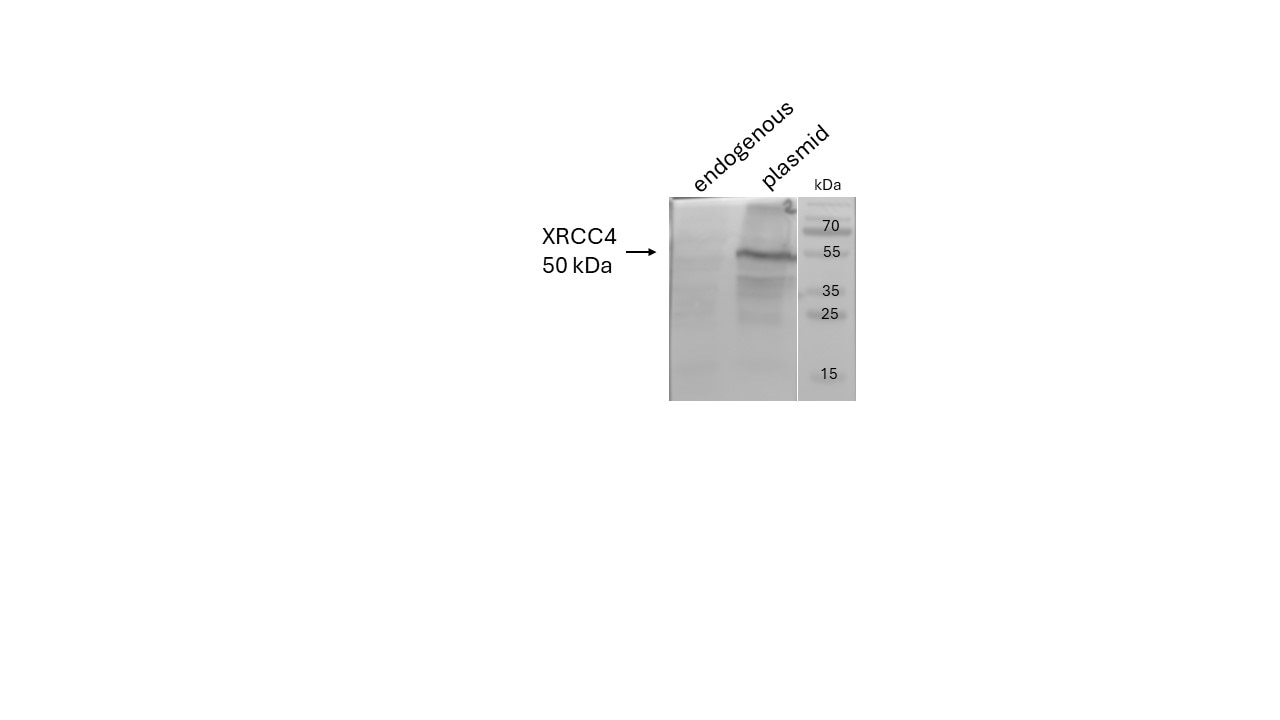 |
